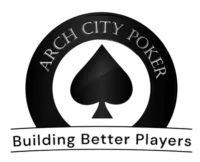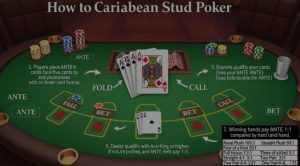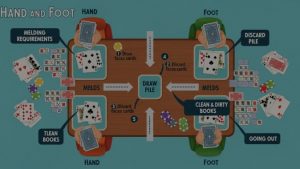Choosing the right online poker school can accelerate your development by years and save thousands of dollars in learning costs. However, the growing number of training options makes selection increasingly difficult without a systematic evaluation framework.
Curriculum Depth & Structure
The foundation of any quality poker school lies in its curriculum organization and content depth. Look for programs that present material in logical progression, building complex concepts on solid fundamentals rather than jumping randomly between advanced topics.
Effective curricula cover both theoretical knowledge and practical application through varied content formats. The best programs combine video lessons, interactive exercises, written materials, and live coaching sessions to accommodate different learning styles and reinforce key concepts.
Evaluate whether the curriculum addresses your specific needs and skill level. Beginning players require different content than experienced players looking to plug specific leaks. Quality schools offer multiple learning paths tailored to different experience levels and goals.
Check for regular curriculum updates that reflect current poker environments. The game evolves constantly, and training materials should incorporate recent strategic developments, software advances, and population tendencies to remain relevant.
Instructor Credentials & Teaching Ability
Instructor quality separates excellent training programs from mediocre ones. Research the backgrounds, results, and teaching experience of the coaching staff before committing to any program. Successful players don’t automatically make effective teachers without additional pedagogical skills.
Look for instructors with verified results in games at or above your target stakes. Coaches should have recent experience in current poker environments rather than relying on outdated knowledge from years past. The best instructors combine playing success with demonstrated teaching ability.
Teaching methodology matters as much as poker knowledge. Effective instructors break down complex concepts clearly, provide actionable feedback, and adapt their communication style to individual student needs. Seek evidence of teaching effectiveness through student testimonials and verifiable improvements.
Consider instructor accessibility and interaction opportunities. Some programs offer direct access to coaches through forums, coaching calls, or personal feedback, while others provide only pre-recorded content. Determine which level of interaction matches your learning preferences and budget.
Technology Platform & Tools
Modern poker training requires sophisticated technology platforms that support interactive learning and progress tracking. Evaluate the technical features and usability of each school’s learning management system before enrolling.
Look for platforms that include hand replayers, range visualization tools, equity calculators, and other poker-specific software integrated into the learning experience. These tools should enhance understanding rather than complicating the learning process.
Mobile compatibility becomes increasingly important as students seek to maximize study time during commutes and travel. Quality platforms offer responsive design that functions effectively on various devices without sacrificing functionality.
Progress tracking features help maintain motivation and identify areas needing additional focus. The best systems track completion rates, quiz scores, and skill development metrics to provide objective measures of improvement over time.
Community & Peer Learning
The community aspect of online poker schools often proves as valuable as the formal curriculum. Active student communities facilitate peer learning, provide motivation during difficult periods, and create networking opportunities with like-minded players.
Evaluate the size and engagement level of existing student communities through forums, Discord servers, or social media groups. Large, active communities offer more learning opportunities but may provide less individual attention than smaller groups.
Look for structured peer learning opportunities like study groups, hand review sessions, and collaborative projects. These activities accelerate learning through diverse perspectives and accountability partnerships.
Consider the long-term value of community membership beyond the formal training period. Some programs provide lifetime access to communities, creating ongoing learning and networking opportunities that justify higher initial costs.
Content Format & Learning Methods
Different students learn most effectively through different content formats and delivery methods. Evaluate each program’s approach to content delivery and determine whether it matches your learning preferences and lifestyle constraints.
Video content should feature high production values, clear audio, and well-organized presentations. Look for programs that offer multiple video formats including live coaching sessions, produced tutorials, and interactive webinars.
Written materials should complement video content rather than simply repeating the same information. Quality programs provide hand-out materials, strategy guides, and reference documents that support long-term retention.
Interactive elements like quizzes, simulations, and decision trainers help reinforce learning through active participation. These features prove particularly valuable for developing quick, accurate decision-making skills under pressure.
Specialization & Advanced Topics
Consider whether each program offers specialized training in your areas of interest. Cash game players need different instruction than tournament specialists, and different game variants require specific strategic knowledge.
Advanced topic coverage separates comprehensive programs from basic offerings. Look for training in areas like game theory optimal play, exploitative strategies, mental game development, and bankroll management that extend beyond fundamental strategy.
Value Proposition & Cost Structure
Compare pricing structures carefully, considering both upfront costs and ongoing fees. Some programs charge monthly subscriptions while others offer lifetime access for lump sum payments. Calculate the total cost based on your expected usage period.
Evaluate money-back guarantees, trial periods, or satisfaction policies that reduce financial risk. Quality programs often offer these protections because they’re confident in their value proposition and student satisfaction rates.
Consider the total value package including community access, bonus materials, live coaching opportunities, and ongoing support. The cheapest option rarely provides the best value when all factors are considered objectively.
Student Success Metrics
Research verifiable student success stories and improvement metrics where available. Quality programs should be able to demonstrate their effectiveness through student results and testimonials.
Look for specific achievement stories rather than vague claims of improvement. The best programs track and report concrete metrics like average improvement in win rate, tournament ROI increases, or stake progression among students.
Support & Customer Service
Evaluate the quality and responsiveness of customer support before enrolling. Technical issues, billing questions, and content concerns should be addressed promptly and professionally.
Consider the availability of academic support beyond customer service. Some programs offer study coaching, progress consultations, and personalized learning plan development that enhance the overall educational experience.
By systematically evaluating these factors, you can identify the online poker school that best matches your learning needs, budget, and long-term development goals.





